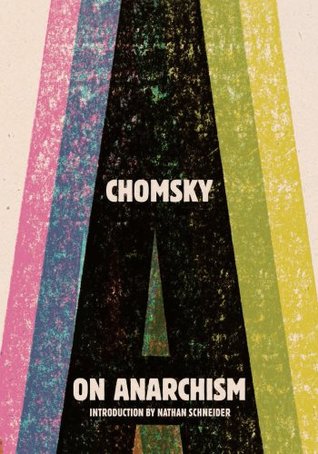More on this book
Community
Kindle Notes & Highlights
With the exception of a few shared mythologies about our founding slaveholders and our most murderous wars, we like to imagine that everything we do is being done for the very first time. Such amnesia can be useful, because it lends a sensation of pioneering vitality to our undertakings that the rest of the history-heavy world seems to envy.
no form of politics is worth our time until it helps struggling people get what they need, sustainably and reliably. All the better if you can do so without patriarchy and fundamentalism.
For the anarchist, freedom is not an abstract philosophical concept, but the vital concrete possibility for every human being to bring to full development all the powers, capacities, and talents with which nature has endowed him, and turn them to social account.
If the present wave of repression can be beaten back, if the left can overcome its more suicidal tendencies and build upon what has been accomplished in the past decade, then the problem of how to organize industrial society on truly democratic lines, with democratic control in the workplace and in the community, should become a dominant intellectual issue for those who are alive to the problems of contemporary society, and, as a mass movement for libertarian socialism develops, speculation should proceed to action.
The problem of “freeing man from the curse of economic exploitation and political and social enslavement” remains the problem of our time.
There are lots of planned economies—the United States is a planned economy, for example. I mean, we talk about ourselves as a “free market,” but that’s baloney. The only parts of the U.S. economy that are internationally competitive are the planned parts, the state-subsidized parts—like capital-intensive agriculture (which has a state-guaranteed market as a cushion in case there are excesses); or high-technology industry (which is dependent on the Pentagon system); or pharmaceuticals (which is massively subsidized by publicly funded research). Those are the parts of the U.S. economy that are
...more
Anarchy as a social philosophy has never meant “chaos”—in fact, anarchists have typically believed in a highly organized society, just one that’s organized democratically from below.
MAN: What’s the difference between “libertarian” and “anarchist,” exactly? There’s no difference, really. I think they’re the same thing. But you see, “libertarian” has a special meaning in the United States. The United States is off the spectrum of the main tradition in this respect: what’s called “libertarianism” here is unbridled capitalism. Now, that’s always been opposed in the European libertarian tradition, where every anarchist has been a socialist—because the point is, if you have unbridled capitalism, you have all kinds of authority: you have extreme authority.
The American version of “libertarianism” is an aberration, though—nobody really takes it seriously. I mean, everybody knows that a society that worked by American libertarian principles would self-destruct in three seconds. The only reason people pretend to take it seriously is because you can use it as a weapon. Like, when somebody comes out in favor of a tax, you can say: “No, I’m a libertarian, I’m against that tax”—but of course, I’m still in favor of the government building roads, and having schools, and killing Libyans, and all that sort of stuff.
Instead, the basic principle I would like to see communicated to people is the idea that every form of authority and domination and hierarchy, every authoritarian structure, has to prove that it’s justified—it has no prior justification.
So despite the anarchist “vision,” I think aspects of the state system, like the one that makes sure children eat, have to be defended—in fact, defended very vigorously. And given the accelerating effort that’s being made these days to roll back the victories for justice and human rights which have been won through long and often extremely bitter struggles in the West, in my opinion the immediate goal of even committed anarchists should be to defend some state institutions, while helping to pry them open to more meaningful public participation, and ultimately to dismantle them in a much more
...more
What is your advice for people who have the same concerns, who identify with the tradition that you come out of, and who want to be engaged in opposition? The same as the factory girls in the Lowell textile plant 150 years ago: they joined with others. To do these things alone is extremely hard, especially when you’re working fifty hours a week to put the food on the table. Join with others, and you can do a lot of things. It’s got a big multiplier effect. That’s why unions have always been in the lead of development of social and economic progress. They bring together poor people, working
...more
This highlight has been truncated due to consecutive passage length restrictions.


